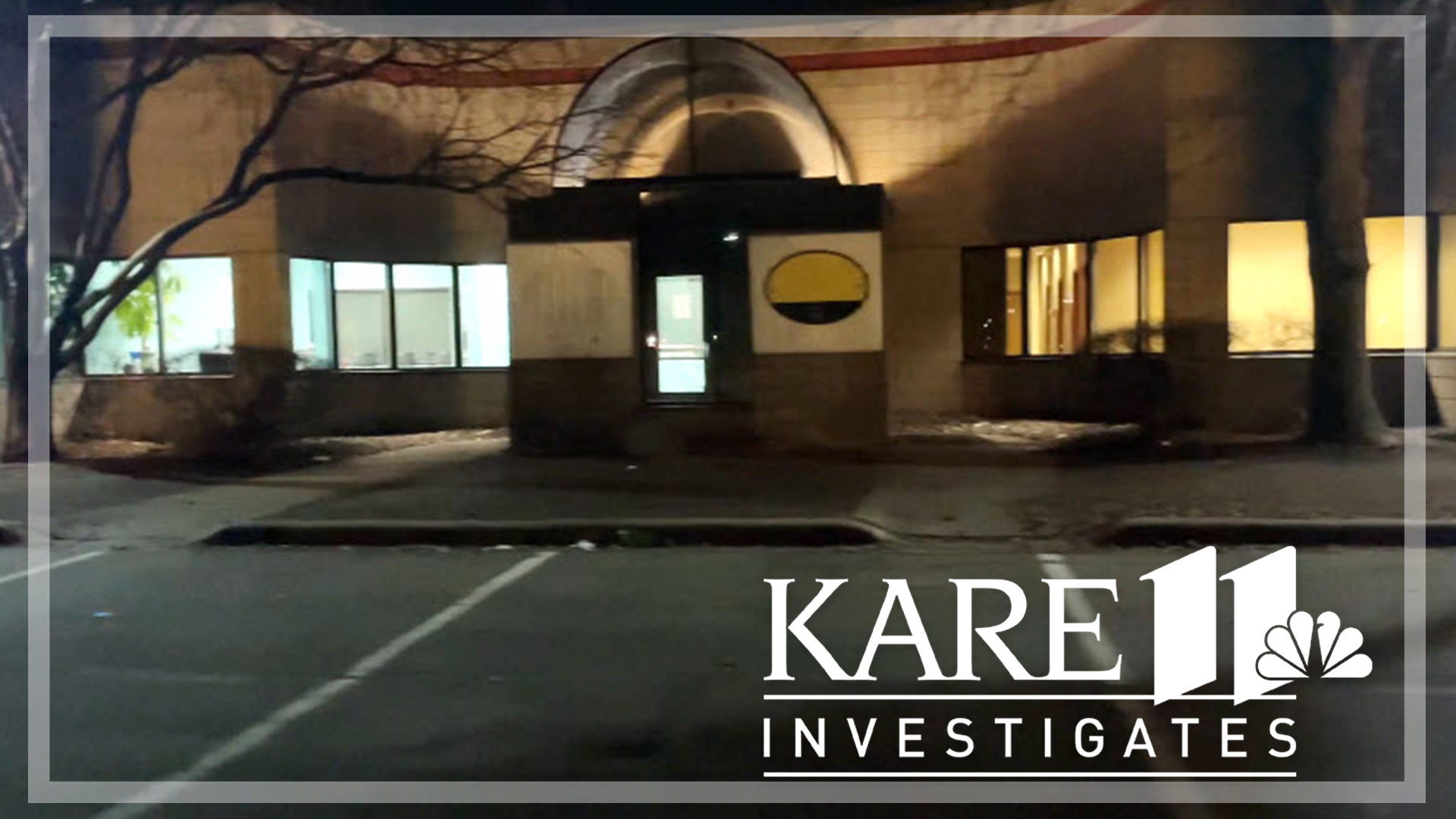ST PAUL, Minn. — At Evergreen Recovery, an addiction treatment center in St. Paul, taxpayers are billed millions of dollars for what are known as “peer services.”
A KARE 11 Investigation has uncovered evidence that Evergreen allowed workers who are not in recovery to bill as peers.
That appears to violate Minnesota law, which mandates peer recovery specialists – basically mentors for people battling addiction – be people with "a minimum of one year in recovery from substance use disorder.”
Despite the law, Evergreen owner David Backus told KARE 11 his workers don’t have to be in recovery to serve as peers. “No, no, no. You don’t have to be in recovery,” Backus said in an interview.
Peer spending soars
Since 2019, Minnesota lawmakers have allowed recovery programs to bill taxpayer-funded Medicaid for peer services.
They believed that individuals with a history of addiction can effectively support others who are still struggling.

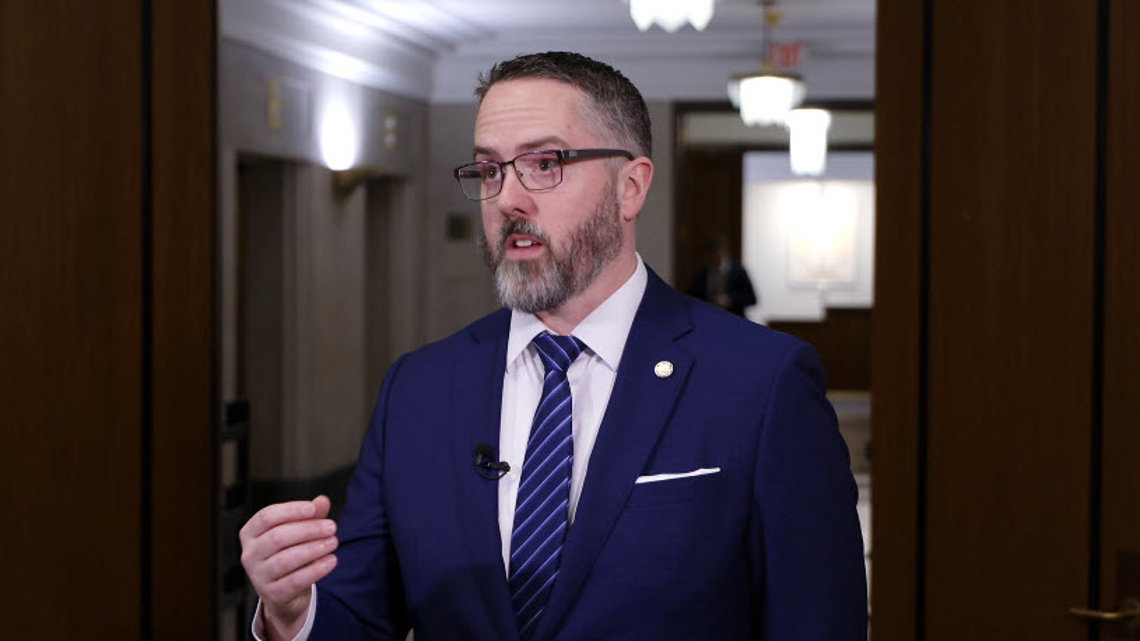
State Rep. Luke Frederick has emphasized the importance of peers in the recovery process. “It’s one of the most, if not the most, impactful resource available in someone’s recovery journey,” he stated.
“A peer recovery specialist is a person who is in recovery, who has walked that path and is supporting a person who is new in recovery,” explained Cathy Harvieux, a 40-year veteran in the addiction recovery field.
Payments for peer services in substance abuse programs statewide have exploded – from $5.7 million in FY 2022 to $22 million in FY 2023, according to data provided by the Minnesota Department of Human Services.
Questionable Qualifications
At Evergreen Recovery, many services - including van transportation to counseling sessions, and sober home meetings – are provided by certified peer recovery specialists and billed to taxpayers.
However, KARE 11’s investigation discovered Evergreen has been using people who may not legally qualify as peers.
When asked if someone needs to be in recovery to be a certified peer, Bailey Peterson Ford, Evergreen’s Director of Housing and a certified peer herself, responded that a peer could be an "ally" – or friend – of someone in recovery.

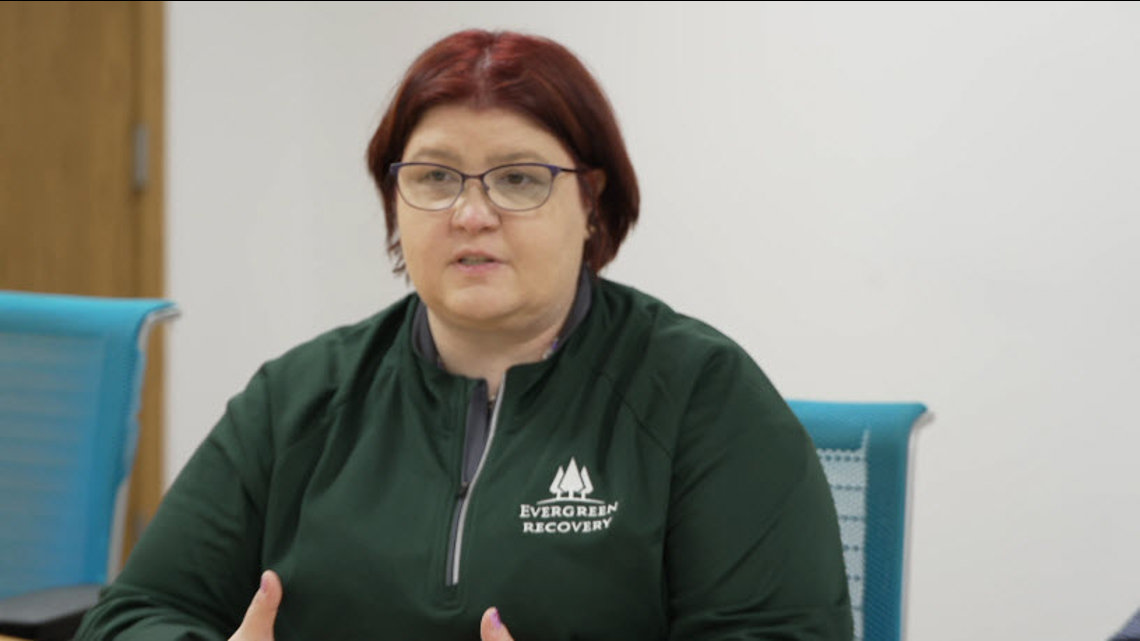
Heather Heim, Evergreen’s CFO, said that despite not battling addiction herself, she qualified as a peer recovery specialist because she dated someone in recovery. She stated, "I was right there in it with him, and it really did inspire me to take the course and training and become a certified peer recovery specialist."
Those statements fly in the face of rules for peers adopted by the Minnesota Certification Board.
The Board clearly states that to be certified, peers must have their own “lived experience related to substance use.” The board's guidelines state in bold print: “Having a friend or family member with this experience does not meet this requirement.”
Roy Kammer, a former Executive Director of the Certification Board and an Associate Professor at Minnesota State University at Mankato, told KARE 11 the rules are clear and that individuals without personal experience in addiction recovery would have to lie on their application to become certified.

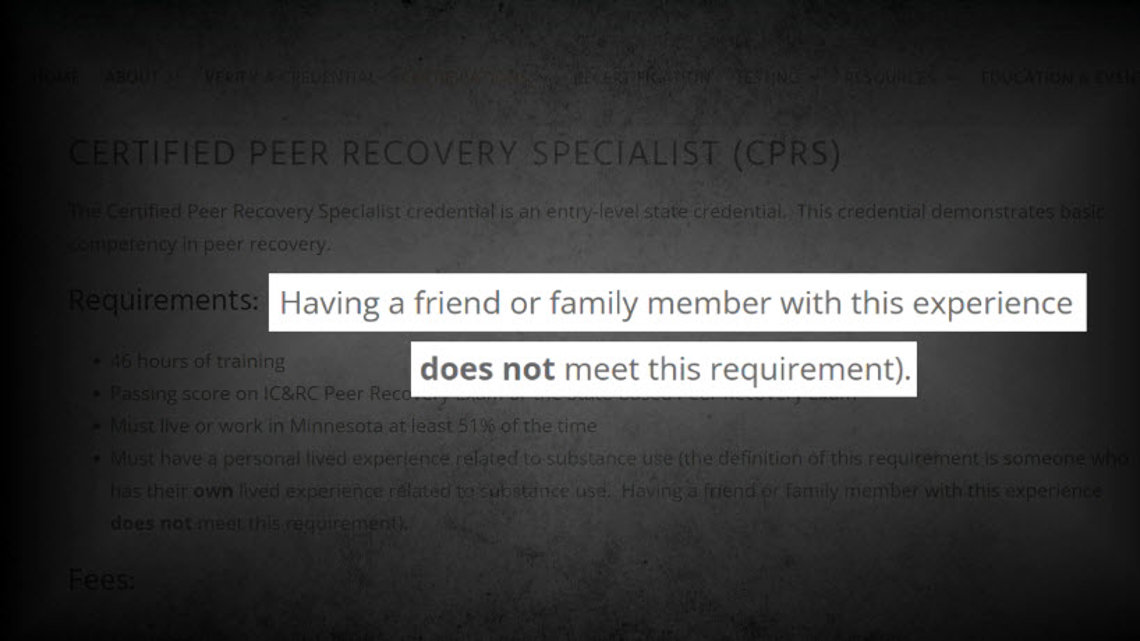
“Not only is there that box to check (on the application) and say you have your personal lived experience,” said Kammer, “there’s also a general attestation at the end saying everything here is true.”
Despite those rules, Backus, Evergreen's owner, told KARE 11 that most of the company’s peers do not have a history of addiction. He justified it by stating, “Somebody that doesn’t have a drug problem has as much to teach somebody as someone that does have a drug problem.”
Evergreen didn’t explain how that belief complies with state law and Certification Board requirements.
Ongoing Investigations
In earlier reports, KARE 11 documented other examples of questionable billing at Evergreen – from improperly billing taxpayers for phone calls with clients, falsely billing group activities as if they were a series of individual interactions, and overstating the times spent on van rides to and from recovery treatment.
In one case, records obtained by KARE 11 show Evergreen billed taxpayers for 203 hours of peer support services supposedly worked by a single employee in a single day. Multiple sources say that employee has never been in recovery – and therefore did not meet the legal requirement to bill as a peer.

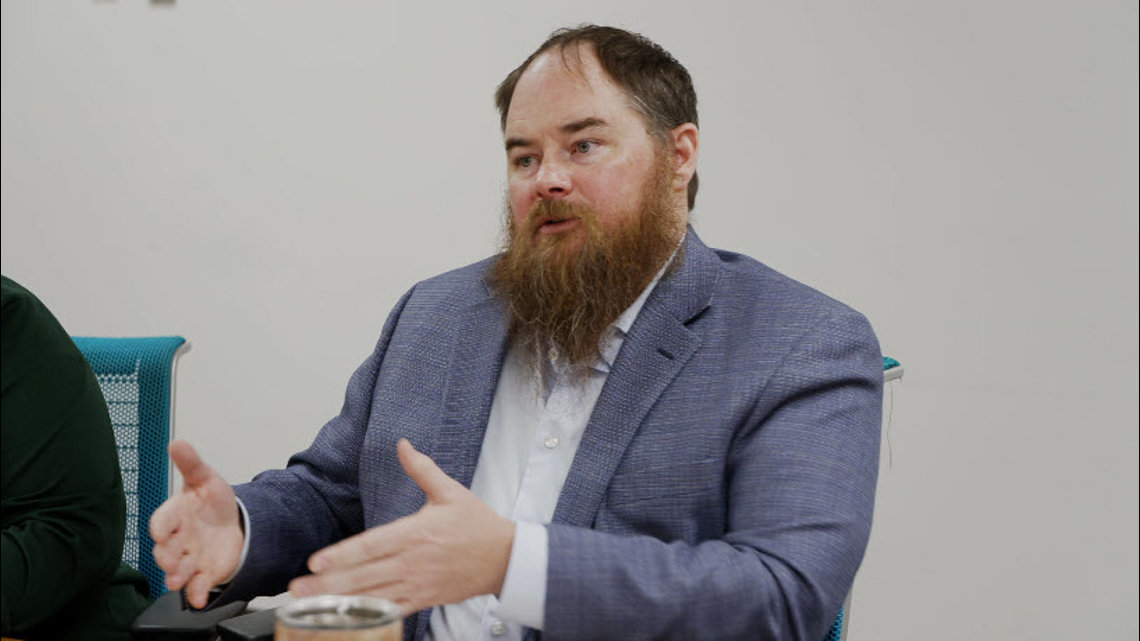
KARE 11’s Investigation has already uncovered tens of millions of tax dollars flowing into Evergreen for addiction treatment that former employees and clients claim has not always been provided as billed.
Multiple sources say a joint federal and state Attorney General investigation is currently underway into Evergreen’s practices.
Former Evergreen employees profiled in KARE 11’s investigation say they’ve been interviewed by an agent with the HHS Inspector General as well as a member of the Minnesota Attorney General’s Medicaid Fraud Control Unit.
If you have a tip for our investigative team, email investigations@kare11.com.
Watch more KARE 11 Investigates:
Watch all of the latest stories from our award-winning investigative team in our special YouTube playlist:
WATCH MORE ON KARE 11+
Download the free KARE 11+ app for Roku, Fire TV, Apple TV and other smart TV platforms to watch more from KARE 11 anytime! The KARE 11+ app includes live streams of all of KARE 11's newscasts. You'll also find on-demand replays of newscasts; the latest from KARE 11 Investigates, Breaking the News and the Land of 10,000 Stories; exclusive programs like Verify and HeartThreads; and Minnesota sports talk from our partners at Locked On Minnesota.
- Add KARE 11+ on Roku here or by searching for KARE 11 in the Roku Channel Store.
- Add KARE 11+ on Fire TV here or by searching for KARE 11 in the Amazon App Store.
- Learn more about the KARE 11+ app for Apple TV in the Apple App Store.
- Learn more about KARE 11+ here.

